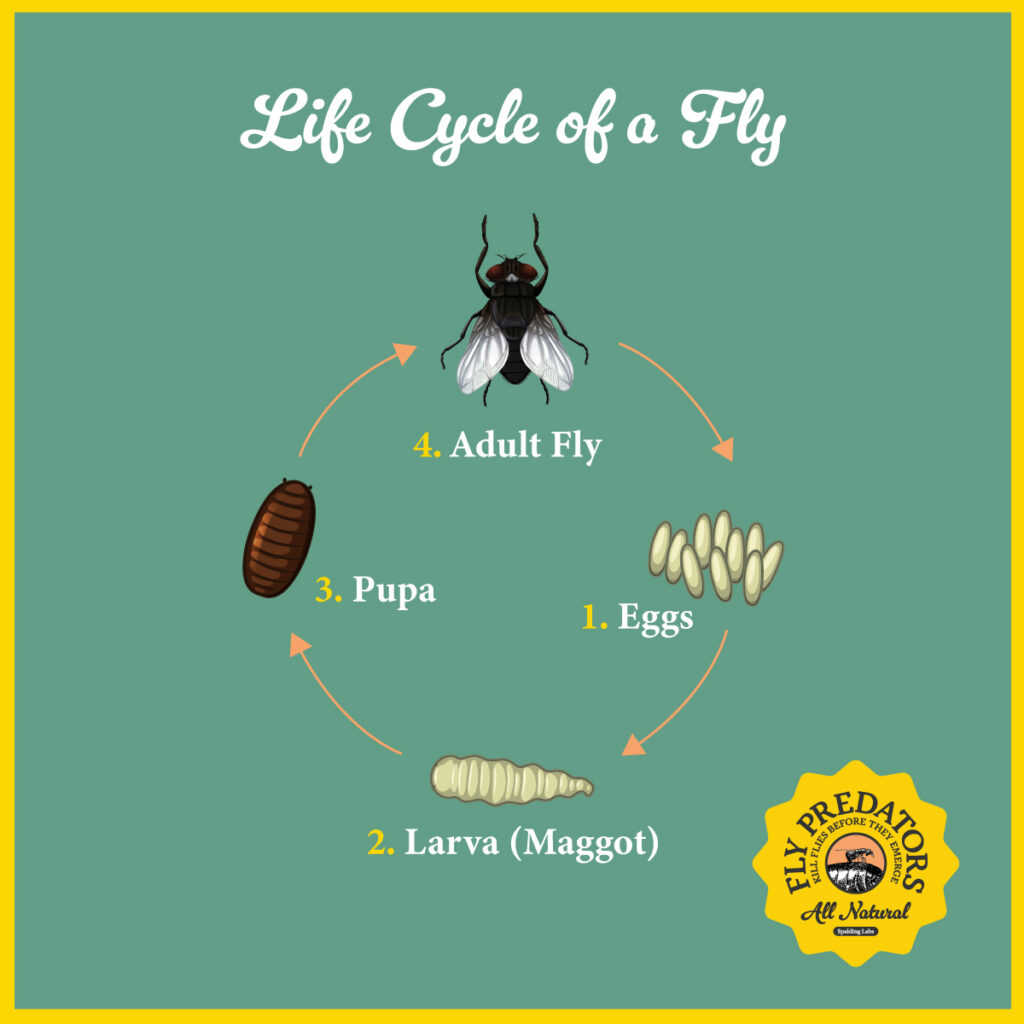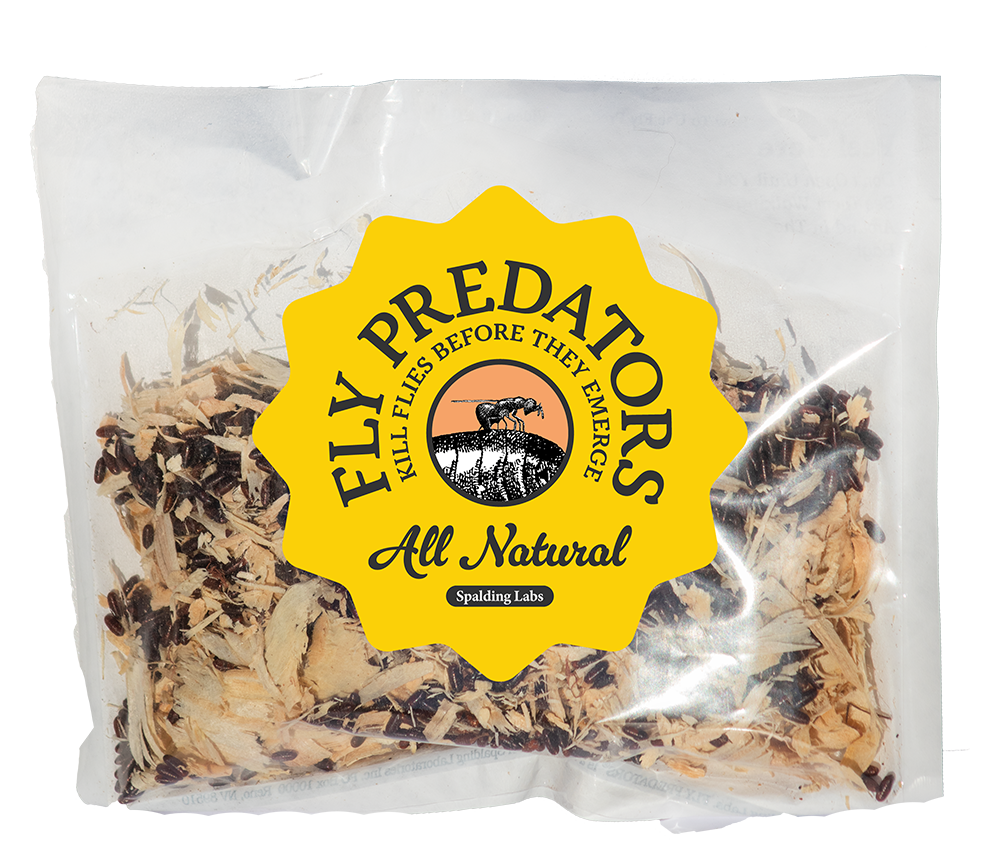Education Center
Your Go-To Resource for Effective Natural Fly Control & Integrated Pest Management (IPM)
Science-Driven Fly Control
The ultimate library of fly control resources and learning.
Research-Based, Scientifically Proven Fly Control
Flies are more than just a nuisance—they spread disease, stress your animals, and make your barn, coop, or pasture less enjoyable. At Spalding Labs, we specialize in natural, effective fly control solutions that help you stop flies before they start—without harmful chemicals. Our fly control education center provides resources to support you every step of the way.
With over 45 years of experience, our team has helped over 150,000 customers develop effective fly control strategies using science-driven, research-backed methods. Whether you’re dealing with flies in your horse barn, cattle pasture, chicken coop, or hobby farm, we’re here to help with expert guidance and proven solutions.
Fly Control Education Center
Learn to recognize common pest fly species and their behavior so you can choose the most effective fly control solutions for your property.
Find out how Fly Predators, Bye Bye Insects, strategic trapping, and smart farm management can drastically reduce fly populations. This holistic approach is called Integreated Pest Management (IPM).
Our team of fly control experts helps horse owners, ranchers, and farmers implement science-backed fly control strategies for long-term success.
Common Pest Flies & How to Control Them
House Flies
Bot Flies
Dung, Black & Cluster Flies
Biting Stable Flies
Deer & Horse Flies
Horn & Face Flies
Integrated Pest Management (IPM)
Stop pests at every stage of their lifecycle By combining biological, cultural, mechanical, and chemical controls
Integrated Pest Management (IPM) is a science-backed strategy to reduce pest populations while protecting the health of your animals and the environment. This holistic approach reduces pest populations while protecting the health of your animals and the environment. By optimizing each of the four components of your IPM—biological, cultural, mechanical, and chemical control—you’ll set yourself up for maximum fly control. Here’s how to make the most of your IPM program across common use sites.
Fly control can be simple and effective: get our science-backed guide to controlling pest flies.
Why Use Fly Predators?
Only 15% of flies are adults. Fly Predators stop flies before you see them.
Fly Predators are nature’s way of controlling fly populations. Spalding Labs Fly Predators are a carefully selected mix of parasitoid insects that naturally target and eliminate pest flies, such as house flies and stable flies. These tiny but powerful insects work to control flies by parasitizing fly pupae. Female Fly Predators lay their eggs inside the pupae of pest flies, and their larvae feed on the developing flies, stopping the next generation before it hatches.
Our custom order generator and on-staff team of fly control experts will evaluate your unique situation to determine how many Fly Predators® you need to manage your pest situation. Once you receive your shipment of Fly Predators®, simply sprinkle the bugs near manure areas every 3-4 weeks during warm months. Want a more detailed explanation? Click the button to learn more!
Ready to Get Started?
Have Questions?
What Our Customers Say
Feedback from animal lovers across the U.S.
Contact Our Team
Reach out with questions or to order
- Questions: 1-888-880-1579
- Orders: 1-888-562-5696
-
Spalding Laboratories
PO Box 778000
Henderson, NV 89077


